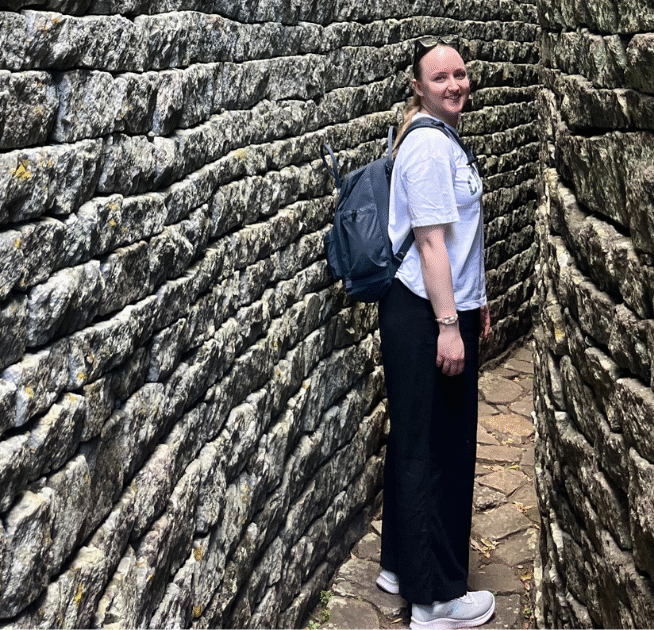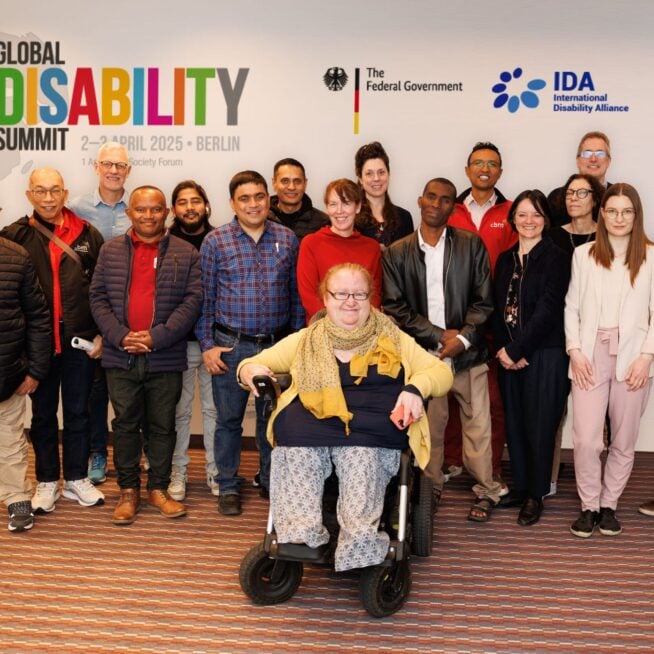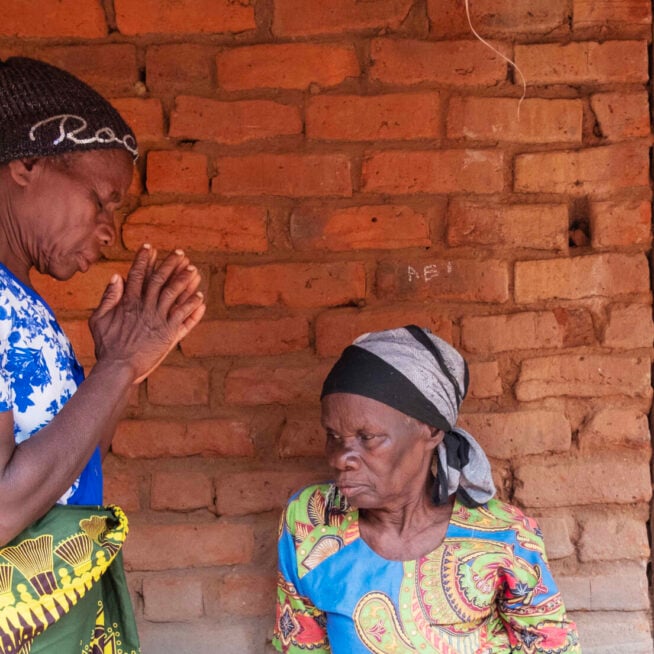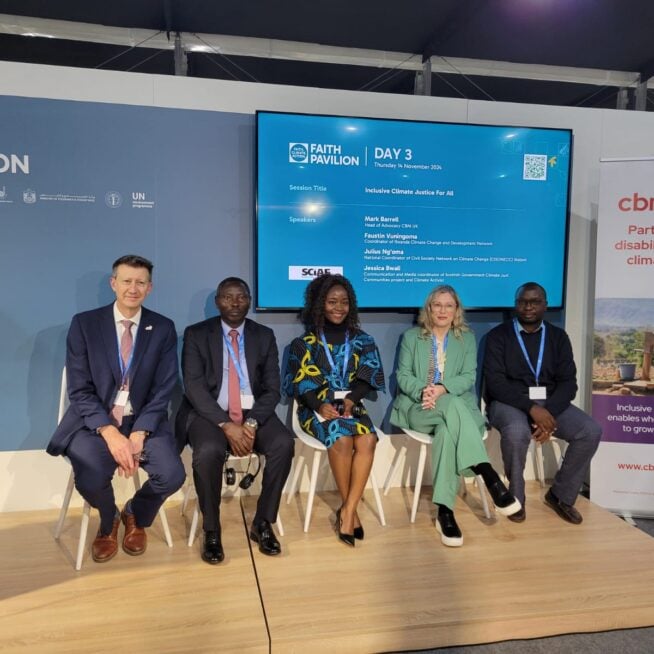Want to transform lives with us? Stay in touch and hear about our news, activities and appeals by email!
An interview with: Danny Haddad
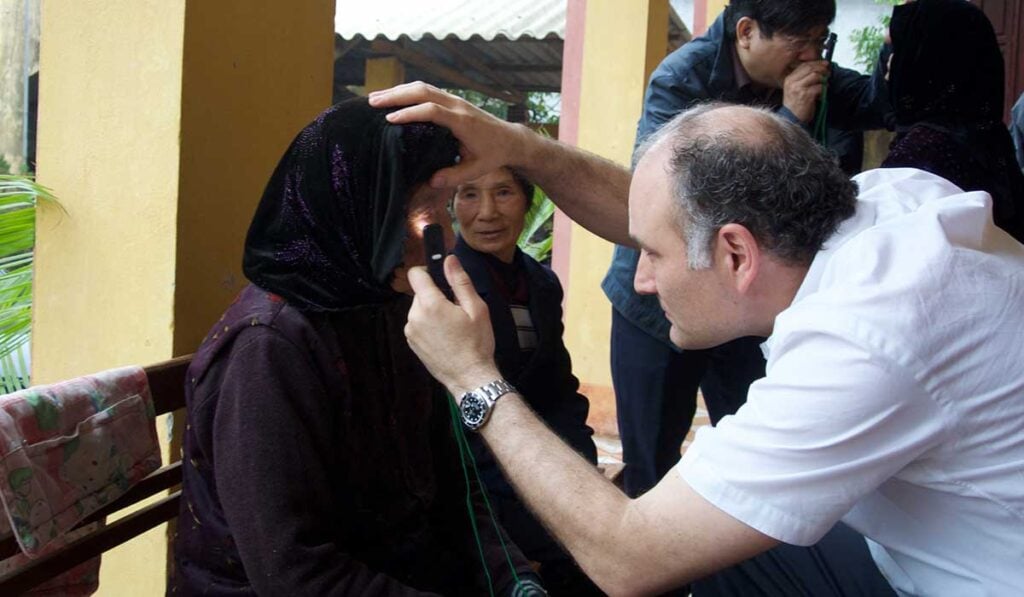
Dr Danny Haddad was appointed as Inclusive Eye Health Director for CBM Global in February 2021 and has a big vision for our future and the impact we can make, together, on global eye health.
When did you first become interested in eye health?
I’ve been involved in the prevention of blindness since 1993, when, as a medical student in the Netherlands, I started working with Prof. Jan Worst. I decided to stretch my 4-year medical theory course over 6 years, so that I could spend my spare time travelling around Africa, visiting eye health clinics and doing training on repairing surgical instruments.
It was a really fascinating time – as a student, you still had the time to just stay for a while at a clinic and really learn what they were doing, what their challenges were, what they were doing in regards to outreach and how they were setting up the outreach. I had the advantage of working with a lot of places supported by CBM, being able to see what different NGOs were doing – how they supported partners in the field and the way that they were operating.
Why did you decide to specialise in public health instead of Ophthalmology?
After I graduated, I volunteered with Helen Keller International to go to Indonesia to manage a cataract programme in West Papua. There, I spent time hiking through the mountains to visit villages, screen patients for cataracts and refer them to the District hospital.
That’s actually when I really realised that my future should not be becoming an Ophthalmologist but focusing more on the public health system. Seeing the challenges that the ophthalmologists and eye care teams face when trying to provide access to eye care to rural areas. So that really led me to think that we need to work on the infrastructure and support for local teams to be able to fulfil their work’.
What made you want to join CBM Global?
I previously worked for Emory University, developing a global Ophthalmology programme, and spent the past 5 years at Orbis International, focusing on the integration of technical training in Country Offices. When I saw the advertisement for the role with CBM Global, I thought it was perfect timing as I was extremely keen to get back into working in the field rather than management – working much more on a community level.
The great advantage at CBM Global is that while we’re drawing on decades of experience in eye health, we’re also a start-up as a Federation, with the chance to develop our vision and shape where we want to go. I find it really refreshing to be a part of an organisation where everybody is eager to work together and are proactively looking into ways we can work better together, to implement our programmes and support our partners and Country Offices around the world, so that we can build an inclusive world in which all people with disabilities enjoy their human rights and achieve their full potential.
What is your vision for CBM Global’s future in global eye health?
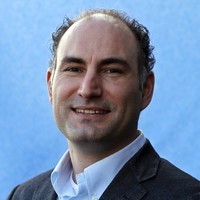 After just over a year working for CBM Global, I’ve seen so many opportunities for us to really build our own niche within global eye care, that I think is going to be really exciting.
After just over a year working for CBM Global, I’ve seen so many opportunities for us to really build our own niche within global eye care, that I think is going to be really exciting.
What I like is we don’t have a narrow approach and focus only on clinical eye health care, but are moving towards a continuum of care, where people in the Global South have access to inclusive support, for example mental health support alongside treatment for low vision. As Inclusive Eye Health Director, I’m working closely with CBM Global’s thematic teams, including the Humanitarian team and Mental Health team, to ensure our programmes in line with this holistic approach.
One example is looking at refugee camps. We are now seeing all over the world that refugees are staying longer and longer in camps – the average time refuges are in camps is now between 10-15 years. That means that we also need to make sure that there are the chronic diseases that are being addressed and eye care, after the immediate needs such as food, water and shelter, have been established.
What are your key priorities for CBM Global eye health?
Right now, we’re very much focussed on cataract surgery and, of course, with cataract being the major cause of blindness, that makes absolute sense. However, there are other diseases such as Diabetic Retinopathy and glaucoma, where we are seeing a huge increase – something that’s going to continue over the next decades. So this is where we can start scaling up our efforts, including an even greater focus on prevention as well as treatment.
Education will be absolutely paramount for prevention. Diabetes is increasing at an alarming rate and we must educate communities’ on healthy diet and promote exercise for children in schools, for example, or we will see a huge shortage of Ophthalmologists to deal with the volume of diabetes screenings.
Training will also be of great importance – training of whole eye health teams, not just Ophthalmologists, including community health workers at the primary level of care. Training more Refractionists for screening of children for near sightedness and adults for presbyopia, and providing them with the glasses they need, will mean that children will be able to get the education that they need and for adults to be able to continue to provide for their families living in the world’s poorest communities and don’t have to retire early and lose their income.
CBM Global is already carrying out training of eye health workers across many of our programmes, but we can look to expand on this depending on the specific needs of the countries in which we’re working. Collaborating more with research institutions and academia will also give us the chance to look at opportunities to do more research, to share learnings and continue building capacity in eye health systems all over the world.
Images: Top – Danny Haddad in Vietnam (2014) using an early version of the Arclight. Bottom – Headshot of Danny Haddad.

